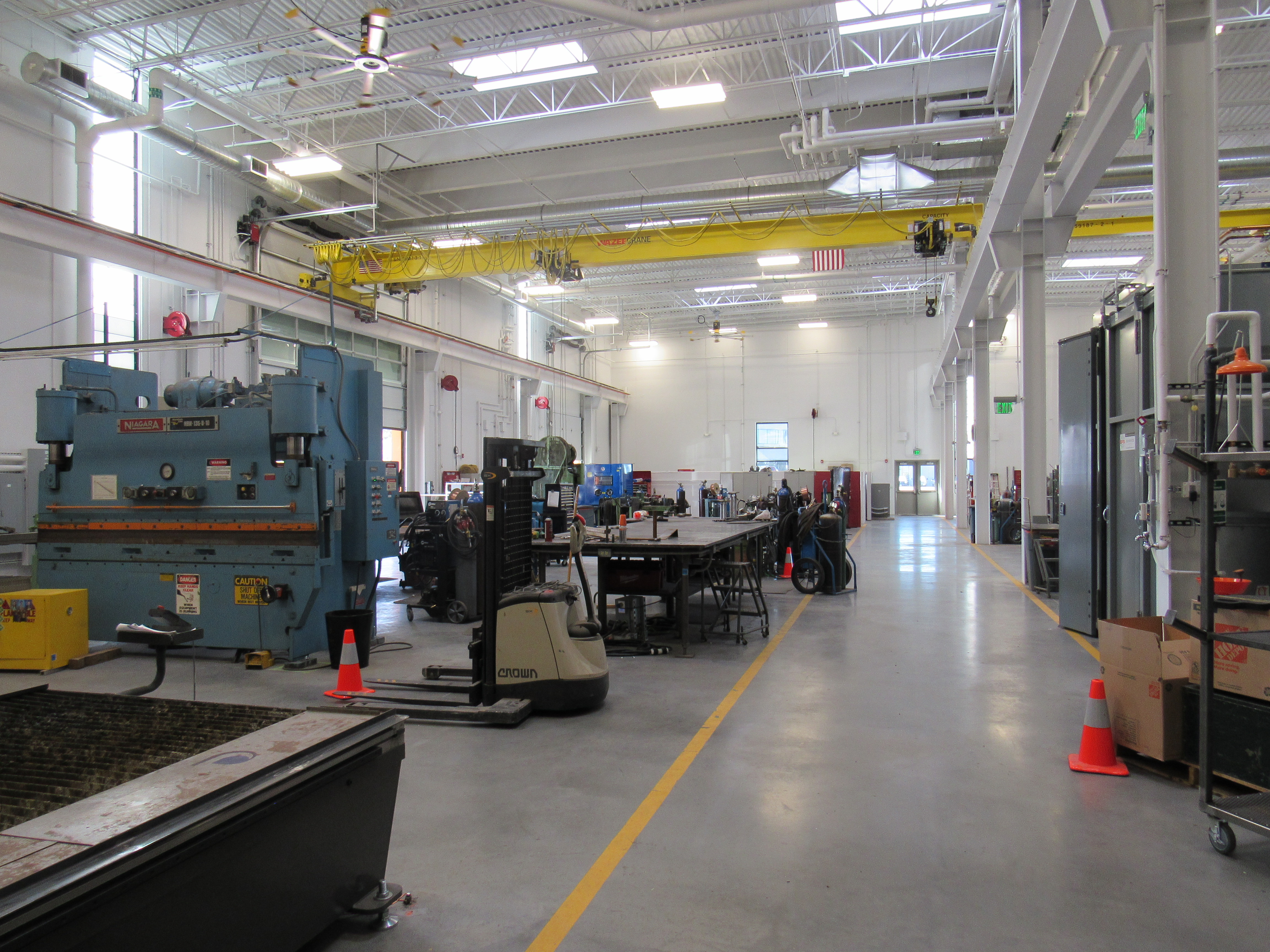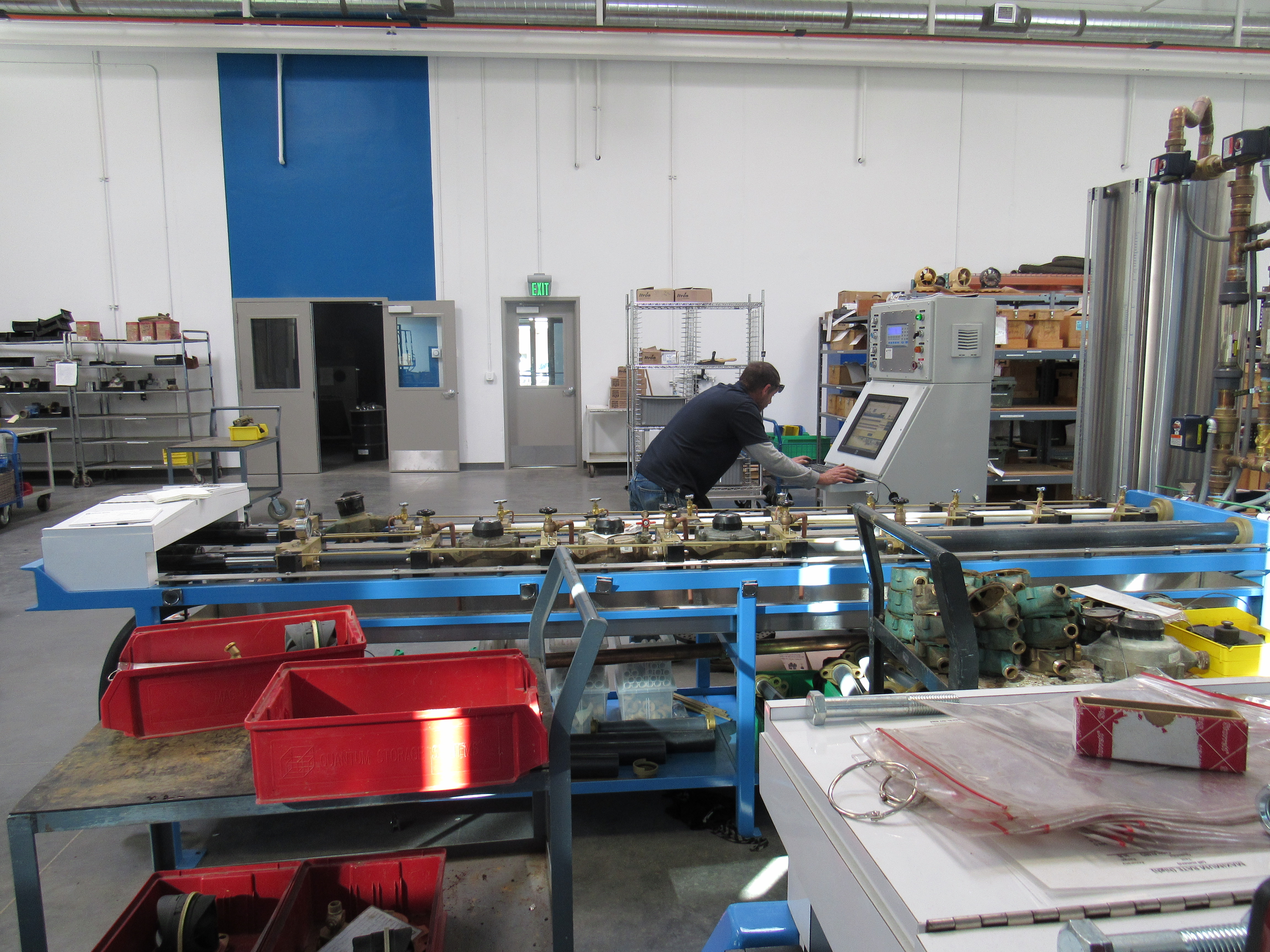
Managing all our resources, both natural and man-made
At Denver Water, we know there is a tremendous responsibility that comes with providing water to 1.4 million people.
That includes managing the natural resources entrusted to our care, like the millions of acres of forests and thousands of miles of rivers and streams that make up our watersheds.
But we must manage other resources efficiently as well.
Operationally, that means bringing teams that perform similar functions under one roof to improve communication, increase cross-training opportunities and be more efficient. The related savings are then passed along to ratepayers.
All of that is now happening in four new operations buildings constructed as part of Denver Water’s Operations Complex Redevelopment.
The overall redevelopment project is designed to make a more efficient, sustainable and accessible facility while continuing to provide outstanding service to our customers. The tasks performed in the four new operations buildings — the Trades Shop, Fleet Services, the Warehouse and the Meter Shop — play a vital role in delivering a reliable, safe water supply to our customers.
Let’s take a closer look at each new building and the people inside:
Trades Shop:
The most versatile of the four new buildings is the one that is home to our trades workers, which include machine, mechanical, metal, construction, electrical, grounds maintenance and plumbing experts. These groups build, repair and maintain just about anything Denver Water needs to keep the system running.
“This is so much better than where we were,” said Rob Richmeier, manager of the trades team. “Just the way we work in the new building is different. It's all instant.”
Richmeier said the proximity of the shops being under the same roof instead of in different buildings throughout the complex has made cross-training employees much easier, allowing them to learn different trades and increasing the group’s versatility and efficiency.
Fleet Services:
The Fleet Services team, which performs preventive and corrective maintenance on all our vehicles — from front-end loaders to dump trucks to sedans — has become more efficient in the new building.
For example, fluids such as oil are plumbed to each bay throughout the entire building. This cuts down the wasted motion of mechanics having to go to storage areas to get new fluids every time one of Denver Water’s 675 vehicles is serviced.
“Now that we’re in one building rather than multiple locations, we’re more efficient,” said Jack Tolmich, fleet and support manager. “We don’t have a heavy equipment mechanic, light equipment mechanic and so on. We have a fleet mechanic and a senior fleet mechanic, and everybody can work on everything.”
Warehouse:
Teams in the field need supplies in order to build or repair the infrastructure that delivers water across the Denver metro area.
Those materials are often housed in Denver Water’s new Warehouse. Affectionately dubbed the “Amazon for water utilities,” the new Warehouse holds just about anything our field crews may need, from tools and equipment like wrenches and safety gear, to infrastructure materials like pipes and valves.
And everything is stored in a much smaller space, 25,000 square feet now, compared to about 50,000 square feet in previous storage areas.
Before the new Warehouse was designed, staff members looked at how modern equipment and more efficient processes could reduce the need for space yet increase operational efficiencies.
“Everybody and everything for our warehouse operation is centralized,” Tolmich said. “We’re pulling material from one area instead of having to go back and forth and duplicate efforts. This setup allows us to be much more efficient.”
Meter Shop:
Denver Water’s new Meter Shop highlights the more traditional type of efficiency associated with Denver Water: the efficient use of water.
Among other things, Denver Water’s Meter Shop has a test bench to make sure meters work properly at each property we serve. The new bench allows the meter team to recirculate water, saving thousands of gallons of water per month, rather than purging it into a drain as was done in the old building.
For more on the efficient aspects of Denver Water’s 35-acre operations complex, read “Building for the future on a sustainable foundation.”




